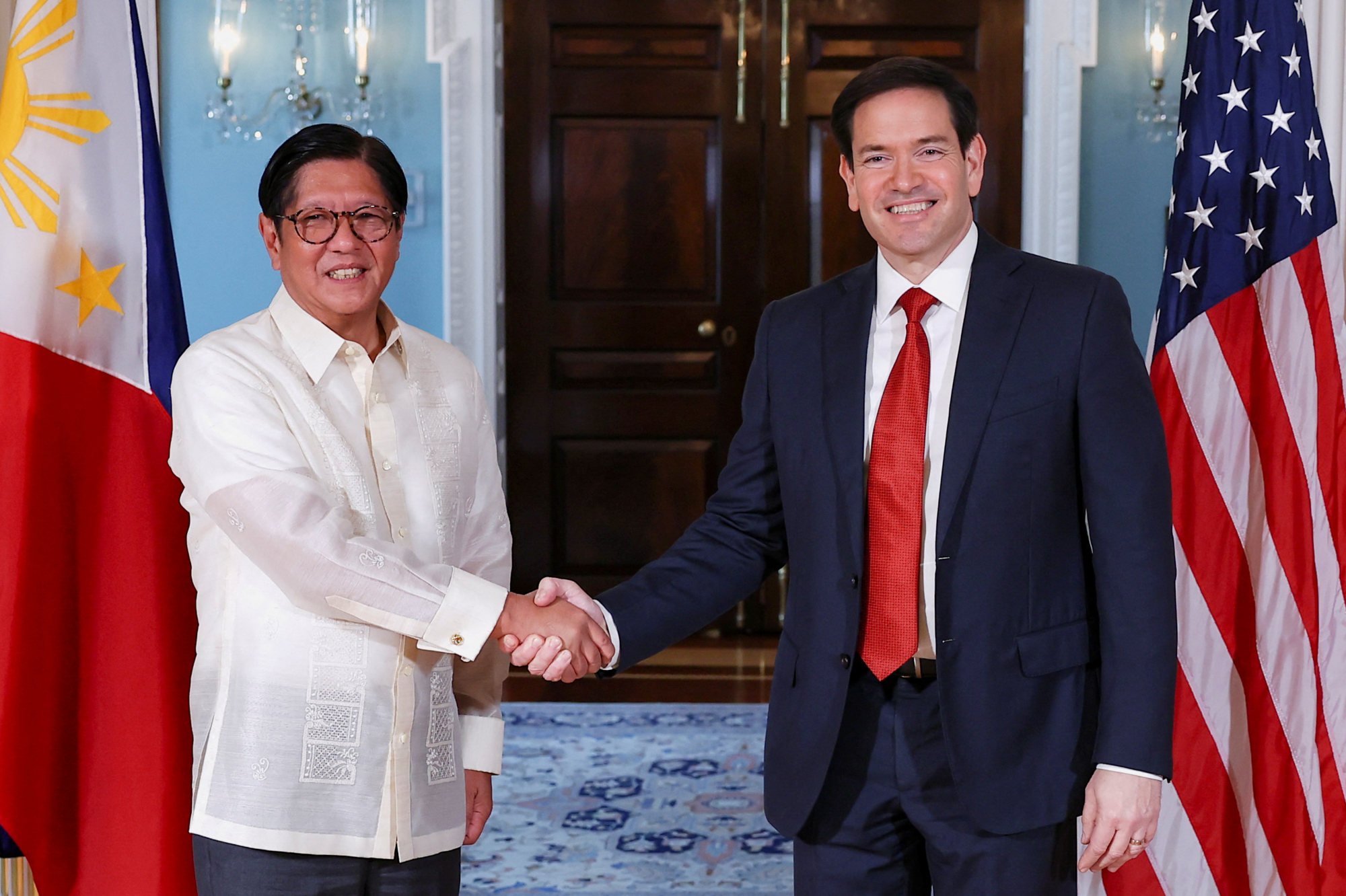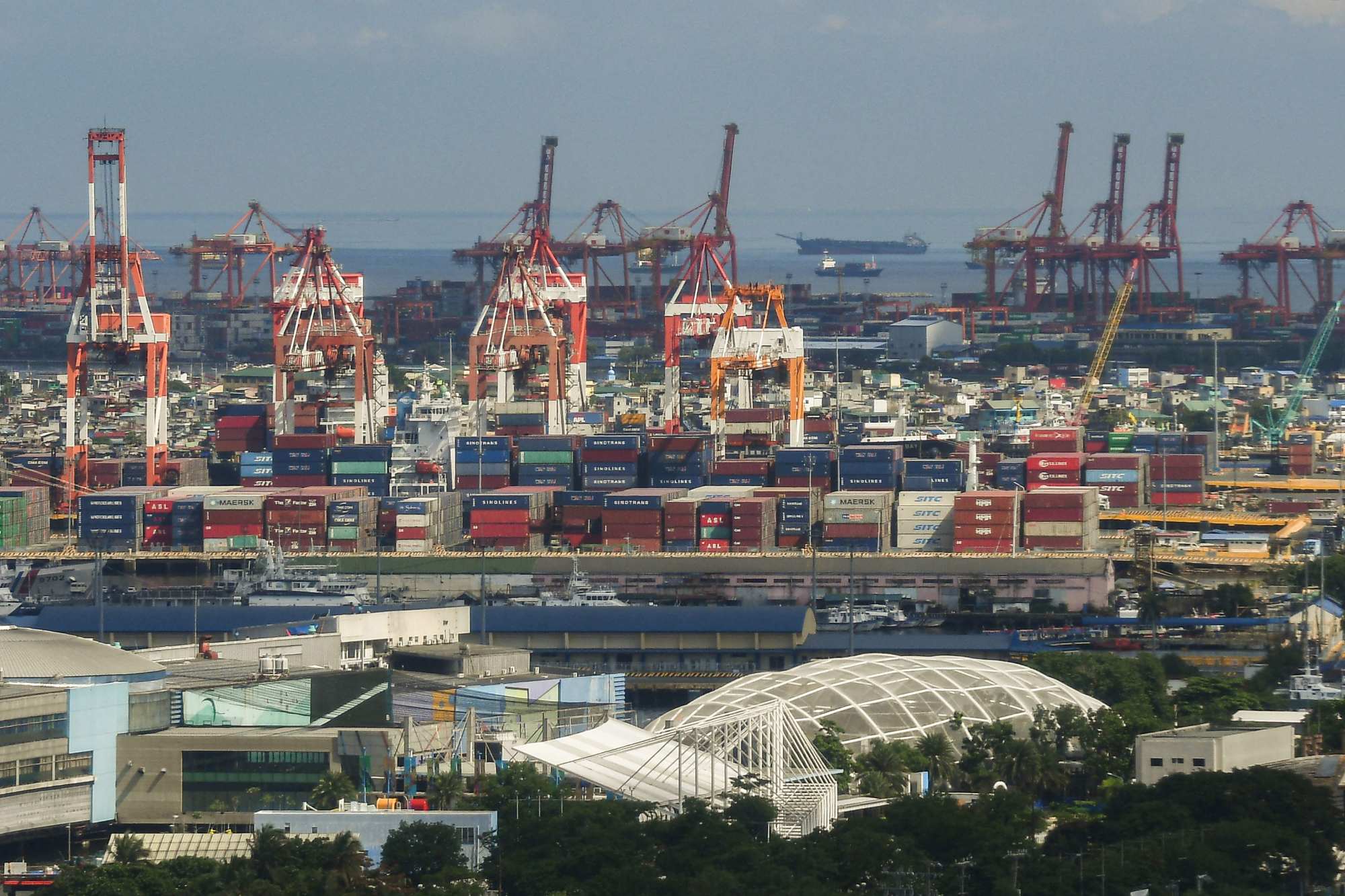What US$60 million aid package means for Philippines-US ties
Despite the modest amount, Washington’s commitment signals Manila’s strategic importance in the region, analysts say

The United States has ended its months-long freeze on foreign assistance with a 3 billion-peso (US$60 million) pledge to the Philippines – a modest sum that analysts say carries outsized strategic significance for Washington’s Indo-Pacific priorities under President Donald Trump.
Analysts say the aid package, while limited in monetary terms, underscores the Philippines’ growing importance to US economic and security strategy – offering a window into how Washington may reward aligned partners even as it pursues a protectionist trade agenda.
Announced just days after Philippine President Ferdinand Marcos Jnr wrapped up a three-day visit to Washington last week, the aid package will support energy, maritime and economic growth initiatives in the country, including private sector development along the Luzon Economic Corridor.
The funding marks the first foreign aid announcement by the Trump administration since it declared in January that all foreign assistance would be reviewed and potentially realigned to better serve US interests.

US Secretary of State Marco Rubio revealed plans to earmark a portion of the fund – 825 million pesos – to develop the private sector in the Luzon Economic Corridor that would help bolster investments in transport, logistics, energy and semiconductors, and generate new jobs in the country.
The Luzon Economic Corridor is a flagship infrastructure initiative designed to connect key Philippine ports and industrial zones, which was first announced during the first US-Japan-Philippines trilateral summit in April 2024.
Observers said despite the modest amount, Washington’s commitment signalled Manila’s strategic importance in the region.
“On its own, the figure is small by foreign aid assistance standards. But this is part and parcel of a broader economic strategy to invest in the Philippines,” said Julio Amador, the interim president of the Foundation for the National Interest and founder and trustee of the non-profit policy advisory firm FACTS Asia.
Dindo Manhit, president of Manila-based think tank Stratbase ADR Institute, told This Week in Asia that “the real value of the funding should be measured not by its amount alone, but by what it represents”.
“As the first such announcement made to any country since the United States paused most of its foreign aid commitments in January, it speaks volumes about the priority Washington places on its relationship with the Philippines,” he said.
Manhit added that Marcos’ position as the first Southeast Asian leader to meet Trump since he returned to the White House in January “clearly demonstrates the Philippines’ elevated standing in Washington’s foreign and security agenda”.
“It is a clear indicator that the United States understands and values the strategic importance of the Philippines,” he told This Week in Asia.
Unhandled type: inline-plus-widget {“type”:”inline-plus-widget”}
Washington’s funding could help strengthen the Philippines’ role in the global supply chain and build on its experience in manufacturing, particularly in electronics and semiconductors, Manhit added.
“Improved investments in transport and logistics could also attract new private sector investments, which can create a positive cycle that reinforces the country’s growth and competitiveness,” he said.
Special concessions
Analysts suggest that Washington is likely to provide more special concessions for its allies, particularly those that serve its security interests, to offset the punitive tariffs the Trump administration has imposed on its economic partners.
“By themselves, tariff rates reveal an economic-conscious US, and the continuing securitisation of these economic interests through its alliances,” Amador said.
The “bigger picture”, he added, showed that “US allies and US-aligned countries seem to have received the better end of the Trump administration’s spectrum of tariff weaponisation”.
Although Marcos and Trump’s meeting led to “an unfavourable outcome” for Manila, Amador noted that the US had “put in place other measures to continue economic engagement with the Philippines”.
Marcos faced public criticism on his deal with Trump after bringing down the tariff rate from 20 to 19 per cent alongside zero tariffs for incoming US goods, which the Southeast Asian leader defended as a “significant achievement”.
“Now, one per cent might seem like a very small concession. However, when you put it in real terms, it is a significant achievement,” he told Philippine media on July 23 before returning to Manila, adding that his meeting with Trump “reaffirmed our ironclad commitment to the Mutual Defence Treaty” and agreed to advance closer economic ties between both countries.

Amador said Washington’s funding was proof that “although favourable rates for Manila could not be reached, alliances are given special concessions and arrangements compared to countries not aligned with the US”, adding that other allies in the region such as Japan and South Korea were not spared from the high tariff rates.
“The US will prioritise dealing with allies, particularly if those allies are willing to advance US security agendas,” he stressed, adding that the tactic could be an economic strategy by Washington to insulate its allies while containing countries “contrarian to American interests such as North Korea, China, and Russia”.
Meanwhile, Manhit said the US had reinforced its intent to “remain a leading force in the Indo-Pacific region”. He noted how US Defence Secretary Pete Hegseth had named the Asia-Pacific region as Washington’s “priority theatre” and emphasised that the US intended to work with the Philippines and other like-minded nations to advance “Trump’s peace through strength agenda”.
“President Trump’s own pronouncement that Washington would work ‘militarily’ with the Philippines, which is strategically located at the heart of the Indo-Pacific, further underscores the depth of US commitment and interest in the region,” Manhit said.
However, Amador warned that the Trump administration’s economic and security strategies had made it clear that the US would be “first priority”.
“The Trump administration wants a win, regardless [of] whether that will be a win against an ally or a win against an adversary,” he said.